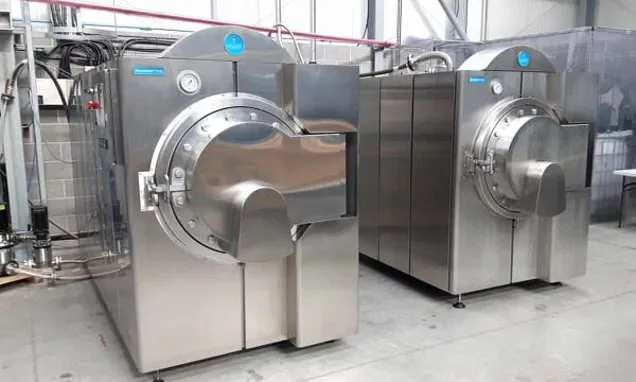A new form of funeral could soon see the mortal remains of departed Scots reduced to an eco-friendly liquid in a so-called 'water cremation'.
Holyrood is working on rules to include alkaline hydrolysis as an alternative to burial or traditional cremation.
The method involves submerging the body in a caustic chemical solution which is then heated to 160C in a pressurised metal chamber for several hours.
An expert group is helping draw up regulations that would let Scots funeral directors be the first in the UK to offer the service.
Advisers including government officials, funeral directors and representatives from Scottish Water and the Scottish Environment Protection Agency have joined the Alkaline Hydrolysis Working Group, which has held its first meeting at Holyrood.
Alkaline hydrolysis cannot dispose of wood, so a coffin would only be used for transporting the body to the crematorium - leading to the suggestion that they could be rented rather than sold.
The group also discussed the novel possibility that some people, especially keen gardeners, may opt to have a water cremation because they want their remains to be used as fertiliser.
The method produces bone remnants which can be crushed to produce white dust similar to ashes which can be handed to loved ones to be scattered.
A water cremation involves submerging the body in a caustic chemical solution.
Among the most famous people to choose the process was Archbishop Desmond Tutu.
The fluid left from the process can be poured down the drain. But because it is rich in amino acids, peptides, sugars and salts it also makes an ideal nitrogen-rich fertiliser.
However, the minutes of the meeting said: 'The group are sensitive to the importance of public perception when introducing any new method of body disposal.
'The possible use of the effluent as a fertiliser can be considered once [it] has become an accepted alternative to burial and cremation. At that time, discussions can take place on whether applicants would be required to give consent for it to be used as such.'
Alkaline hydrolysis, which is increasingly popular in other parts of the world, is considered greener than other forms of disposal because it does not take up land for burial and does not produce the same harmful gases as cremation.
Among the most famous people to choose the process was Archbishop Desmond Tutu who died in South Africa in 2021.
A government consultation on alkaline hydrolysis last year showed 84 per cent of Scots were in favour of allowing it.
Public Health Minister Jenni Minto said following a consultation, the proposed procedures and regulations will be 'laid before the Scottish parliament for consideration later this year'.
